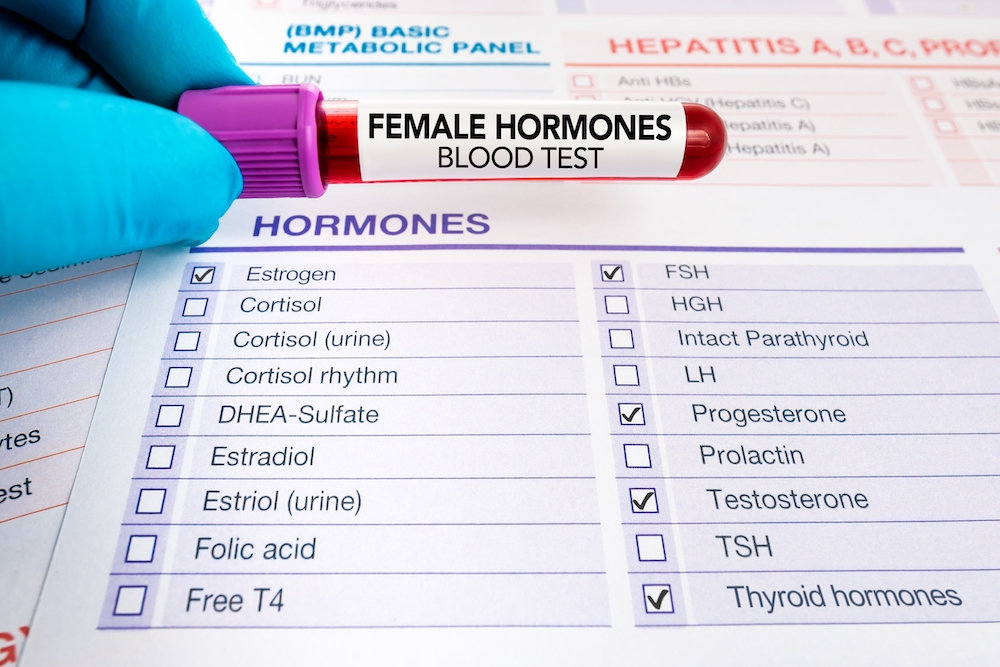SECOND LIFE: Three essential steps for wellbeing after 40. How to optimise your health and prevent disease in times of hormonal fluctuations

Optimise health looking through a new lens
You know the famous saying that the only sure thing in life is change and yet it seems so hard for us humans to accept and sometimes adapt to change. CHANGE is scary. But how about if we swap the word for another one that brings a better feeling and a different, more effortless and natural association, something more peaceful and harmonious rather than something that disrupts. Instead of change let’s use the word rhythm.
There is rhythm to everything in nature. The sun rises, the sun sets, and hundreds of different things happen in between. The seasons change too just as our lives go through different stages. We are influenced by both internal and external rhythms of nature, our age, menstrual cycles, the pulse of hormones, the sleep rhythms and the phases of the moon. Nowhere are rhythms more vital and influential than within women.
Unfortunately over the years of technological progress, most of us seem to have lost progressively the connection we used to have with nature. We’ve been forcing ourselves to appose natural rhythms, to change them instead of go with the change. We have been avoiding what we really feel and need at each stage of life.
As I’ve been discussing with women lately, while awakening a healthy steady dialogue within myself, the 40s is a time when we return to the wisdom of our mothers and ancestors, realising we are not that different from them and some universal truths will be here forever.

What happens after 40?
Our 40s are often the time when we start to really contemplate what old age means. Till 40 we still live with the idea that old age will not happen to us, but then it becomes a real, tangible thing in our lives. We literally start feeling it. Sometimes physically as our bodies begin to change and show us what we haven’t been paying attention to. Sometimes it is through thoughts and revelations about what we have achieved and the relationships we’ve built with ourselves and others.
In our 40s we start to value our time more, cultivating boundaries, recognising how important it is to stay true to ourselves.
In our 40s the changes in our brains and bodies become more visible and more feel-able. What we realise is that what we do in this stage of life can have a huge impact on how we feel for the next several decades, helping us prevent illness, promote longevity, optimise health and perhaps feel even better than we did at age 25.
What’s very important in our 40s is to keep a growth and expansion mindset instead of giving in to nostalgia and what we used to look or feel like before. It’s important to tune in and recognise the changes, to listen attentively to our bodies, to remain curious, to adapt to the new health needs and advocate for ourselves, seeking assistance when necessary. Don’t try to erase the past, but focus on building a new future for yourself. Start writing a new chapter! This is what we will try to help with in our future articles, newsletters and tips on Instagram.
As a start we’ve created a list of things that a woman in her 40s can do to optimise her health and prevent disease. In our age and time prevention becomes the name of the game together with daily self-care routine and healthy mindset.
Is it all downhill from now on?

When women’s oestrogen starts dropping, it triggers a whole lot of changes that we might not be fully aware of, at least not before the first and most popular symptoms start showing up. This period is usually called peri-menopause. Educating ourselves about what is happening in our bodies, before even experiencing symptoms, can help us maintain a more compassionate attitude towards ourselves and motivate us to build new habits for wellbeing and health. The internet is full with “bad news” about menopausal women, but I suggest you try to let go of the fear and the script, written by others for you. Try to think from an empowered point of you, try new things, start a new chapter in your life, be curious and experiment in order to adapt to a new phase of life and enjoy a new rhythm.
What is peri-menopause all about? This is the period before entering menopause and during this time the levels of the two main sex hormones, oestrogen and progesterone starts to drop down. What we may not know is that the testosterone levels also suffer which triggers a whole series of other changes in the female body.
Weight gain, emotional instability, foggy mind, are only the tip of the iceberg revealing us that there is a change, or rather a new rhythm happening. If we look beyond the symptoms, here is what comes out.
The dreaded weight gain is only the tip of the iceberg, but you can navigate it
Why weight gain?
One part of it is the changes in your gut and microbiome. At peri- and menopause, your body is producing less estradiol, the dominant form of oestrogen during your menstruating years. Instead, the balance shifts towards higher levels of estrone, a less potent form of oestrogen. This change in hormone production can impact the composition of your gut microbiota.
Your body is prepared for this and has a specific collection of gut bacteria called the estrobolome, which help regulate estrone levels in menopause. There is plenty you can do to help it along too! The most important to know is that you need to eat diverse food and some of the best are fermented foods (Kombucha, Kimchi, Miso, Kefir, Sauerkraut) and foods with fibre (nuts, pulses and seeds).
Another reason for weight gain during peri- and menopause is that oestrogen has been helping female body to optimise insulin. Insulin is the hormone responsible for regulating blood sugar levels. Being low or dominant on oestrogen both can lead to insulin resistance, which usually causes type 2 diabetes, or weight gain around the waist mostly and also visceral fat (around the organs).
Beside estradiol, during menopause women lose progesterone too, which levels may drop faster at the beginning. This means you may be losing estradiol, but still be oestrogen dominant. All these hormonal fluctuations can cause potentially insulin resistance meaning you may have trouble processing sugar and refined carbohydrates, which can contribute to unwanted weight gain and the so-called Menopause belly.
Another sensitivity women develop during menopause is towards alcohol.
As women age, their tolerance to alcohol also weakens, due to the liver reducing the ability to break down and metabolise alcohol. This can lead to more intense headaches, which are already a common menopause symptom.
Forgetfulness is a natural part of ageing, too, but throw menopause and alcohol into the mix and you’ll understand why you’ve suddenly started putting your keys in the fridge. Approximately two-thirds of women report the inability to think clearly during perimenopause but this usually restores itself after the menopause. In contrast, drinking alcohol affects cognitive function instantly as well as in the years following heavy use.
Along with caffeine and spicy foods, alcohol can cause spikes in temperature, making night sweats worse. This is because blood vessels dilate as the heart rate speeds up causing the skin to feel flushed and encouraging the release of sweat. Drinking alcohol close to bedtime can make night sweats even more unbearable for menopausal women. (Source)
The best way to optimise health in this moment is to manage your insulin and glucose levels, to break down all kinds of toxins that the body is unable to deal with any more. As it appears, you can do that through fasting (time-restricted eating plan ). A free tool, available to anyone, anywhere. Fasting helps the body have periods of rest, protecting you from unhealthy high sugar spikes and lows (which can leave you tired and exacerbate brain fog), optimising insulin function and keeping your blood sugar levels in a healthy and normal range. Fasting also appears to impact positively the gut bacteria.
One more important element to feel good and optimise your health during this new period of your life, called menopause, is adjusting your daily diet during the transition to menopause in order to lessen or prevent weight gain and lean tissue loss. In fact it is not just a mater of how you look, but how these adjustments will keep you strong, resilient and healthy. Beside becoming more sensitive or intolerant to sugar and other simple carbohydrates during and after menopause women are at an increased risk of osteoporosis due to the decline in oestrogen levels. Eating enough protein, along with other key nutrients like calcium and vitamin D, can help support bone health and reduce the risk of osteoporosis. Plus more protein means more muscle and more collagen.
It is important to understand that sometimes minor adjustments in the daily diet can have a profound effect on how women experience the transition to menopause. And none of these are to be underestimated: mental health, weight gain, self-confidence, bone density, hair and skin health, lean muscle. During this period focus on nurturing your body so it stays healthy and fit for long.
Start eating more protein and healthy fats. The consumption of healthy fats is also very important for women’s health in that peri-menopause period, because all hormones are made from protein and fat. Sex hormones in particular (such as oestrogen and testosterone) are made from cholesterol. If fat and cholesterol are cut out of the diet, a steady supply of oestrogen isn’t produced, which may cause symptoms of oestrogen deficiency (insomnia, night sweats, heart palpitations, etc.) in women of any age.
Another fact is that low-fat, low-protein diets inhibit the body from making serotonin, a neurotransmitter necessary for regulating moods and contributing to a sense of well-being. To compensate, most people crave carbohydrates and stimulants that initially raise insulin levels, resulting in a rapid release of serotonin from the brain’s storage supply. While this temporarily improves mood, it starts a cycle of cravings and depression. However, eating a healthy amount of good dietary fat and proteins balances insulin increases the production of serotonin, and helps achieve level moods.
What you can do for weight gain and to optimise your health at this stage of life, no matter how counter productive it may sound, is eat healthy fats such as avocado, salmon, eggs, grass fed and grass finished red meat, olive oil, tahini, almonds, sesame seeds).
A list of herbal remedies and more biohacking tips to support the hormonal balance during menopause will follow up shortly on our newsletter.
Brain Fog and how to optimise of your mental health
With the decline of oestrogen in our 40s some significant changes start to occur in our brain. Estrogen is known to be highly important to brain function. Research shows that the hormone supports better cognitive function by affecting a number of key areas, such as the hippocampus and prefrontal cortex. The brain is actually full of oestrogen receptors that act as a complex system of pathways to transducer signals from one area of the brain to another. Many of these receptors are found in parts of the brain that are responsible for things like memory formation and memory recall.
Some experts claim that the drop in oestrogen levels is directly related to a total reorganization of the circuitry of the brain. In other words, the drop in oestrogen can alter brain function, memory performance, and even thought processes. Another important factor is the fact that a drop in oestrogen automatically means a loss of glucose in the brain. Glucose is utilized by brain cells as a sort of fuel to function.
However, consider this: the brain is more than 60 % made of fat and the rest is protein, water, carbohydrates and salt. Fueling your brain with saturated fats is essential for the good function of the brain. Consuming fat also encourages ketosis, which provides energy to the brain and helps protect against brain diseases, among other health benefits. A diet high in monounsaturated fats can also increase production of acetylcholine, a neurotransmitter that plays an important role in learning and memory.

This does not mean that you can eat fat-rich diet together with ice cream and biscuits. Watch for your carbohydrates intake. Consume them in the form of vegetables and don’t forget to exercise when possible. I know you hear this same message minimum one time a day, but I exercise is one of the best ways to manage menopause and optimise your health for the years ahead of you.
Remember cognitive decline, brain fog, difficulties to concentrate, Alzheimer disease, are directly associated with menopause. These changes are thought to be directly related to a drop in oestrogen levels.
So what you can do to take care of your brain and optimise your health in the long run? Eat well and eat food rich in Omega 3, such as fit, eggs, avocado, olive oil, nuts.
Second thing you have to do is avoid alcohol which kills cells and damages cellular networks in the brain, for example. It leads to loss of brain volume and is associated with deficiency of thiamine (Via B1), essential for turning food into energy and a healthy nervous system.
As you may very well know the brain loves oxygen. The brain uses about a fifth of your body’s total oxygen supply. Oxygen helps send nerve signals and messages throughout the body. When the brain doesn’t get enough oxygen, brain cells begin to die. Some of the ways to get more oxygen to your brain are brisk walks throughout the day, diaphragm breathing, regular exercise and cold exposure.
Another very powerful way to boost your body oxygen levels is through Hyperbaric Oxygen Chamber, a favourite biohackers’ gadget.
Increasing oxygen to the brain supports increased cognitive performance, enhances clarity, concentration and focus. It gives the brain the fuel it needs for peak performance. Oxygenation can promote neuroplasticity and help in the treatment of various neurological diseases where improving cognition is important.
More brain oxygen also has the beneficial side effect of calming the nervous system with slower, deeper breathing (which can be seen on an EEG or an electroencephalogram).
Finally a beloved energy source of mine that rocket-fuels the brain is MCT Oil, which I blend into my morning coffee. MCT oil is medium-chain triglyceride oil and the difference compared to either long or short-chain triglycerides is the number of carbon atoms in each molecule. Compared to the long-chain triglycerides found in other vegetable oils, MCTs are smaller and, consequently, more readily absorbed and metabolized — qualities that make them a good source of fuel for the brain.
HOW MCT OIL NOURISHES THE BRAIN
The brain cannot store energy, so it needs a constant and steady energy stream that’s normally supplied by blood glucose.
Fortunately, there’s a backup energy source for the times when blood sugar level gets low. When needed, your liver can break down stored body fat to produce ketones. Ketones readily cross the blood-brain barrier to provide instant energy to the brain. And while you can provide ketones for your brain by eating a very high-fat, low-carbohydrate ketogenic diet, you don’t have to.
The medium-chain fats in MCT oil (and its source, coconut oil) raise the blood level of ketones, thus providing a convenient workaround.

GET STRONGER
One last but important change as we turn 40 and our hormones starts to change. Specifically oestrogen which as it turns out regulates bone metabolism, resorption and bone formation at cellular level. You can imagine as the levels of oestrogen start dropping, we lose bone density gradually. This is why it is very important to work on our muscles and strength. Heavy resistance training helps build stronger bones. Muscles also support bones. In fact they also burn fat. There are many reasons to strength training, like they are described here.
And before you say you’ve never ever in your life have been to a gym, let me tell you I actually quit gym when I had my first child and till today I do a mix of exercises at home, I lift weights outside and I do plenty of pilates exercise. Holding a plank, doing squats, holding a chair pose strengthens your support muscles and helps you with good balance. You don’t need to go to the gym. Do what lights your fire and be patient with yourself.

Finally, it is your choice to look at this stage of your life as a second chance or just a new chapter, when you can do things differently and live your best potential. It is your choice how you manage this time of transition, optimising health through several lifestyle adjustments. None of these are prescribed methods or medicine for everybody. It’s best to always consult your doctor, but most of the advice we give is relatively easy and non-harmful, plus it is free and accessible to anybody.
If you want to receive more tips and ideas for well-being and optimum health after 40, subscribe for our Newsletter!
Sign to receive the complete experience
with unpublished content & community deals


